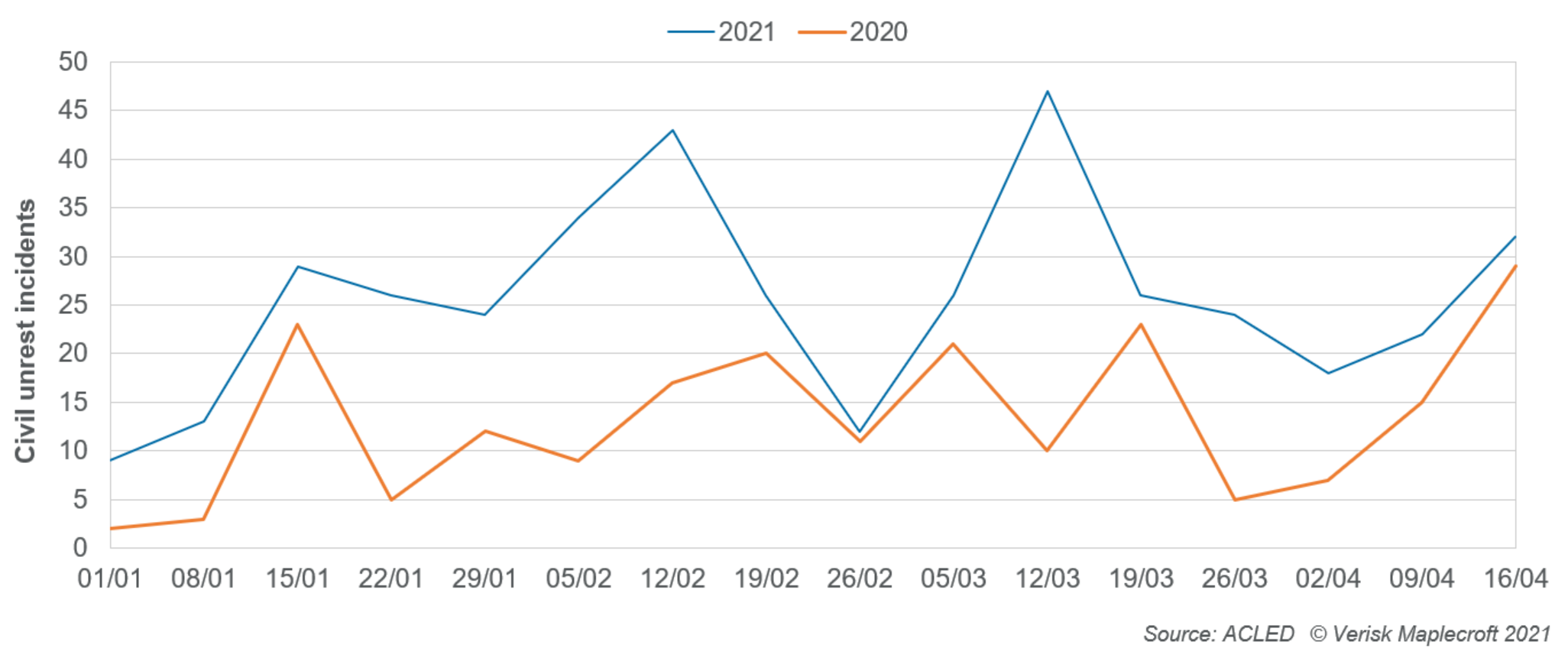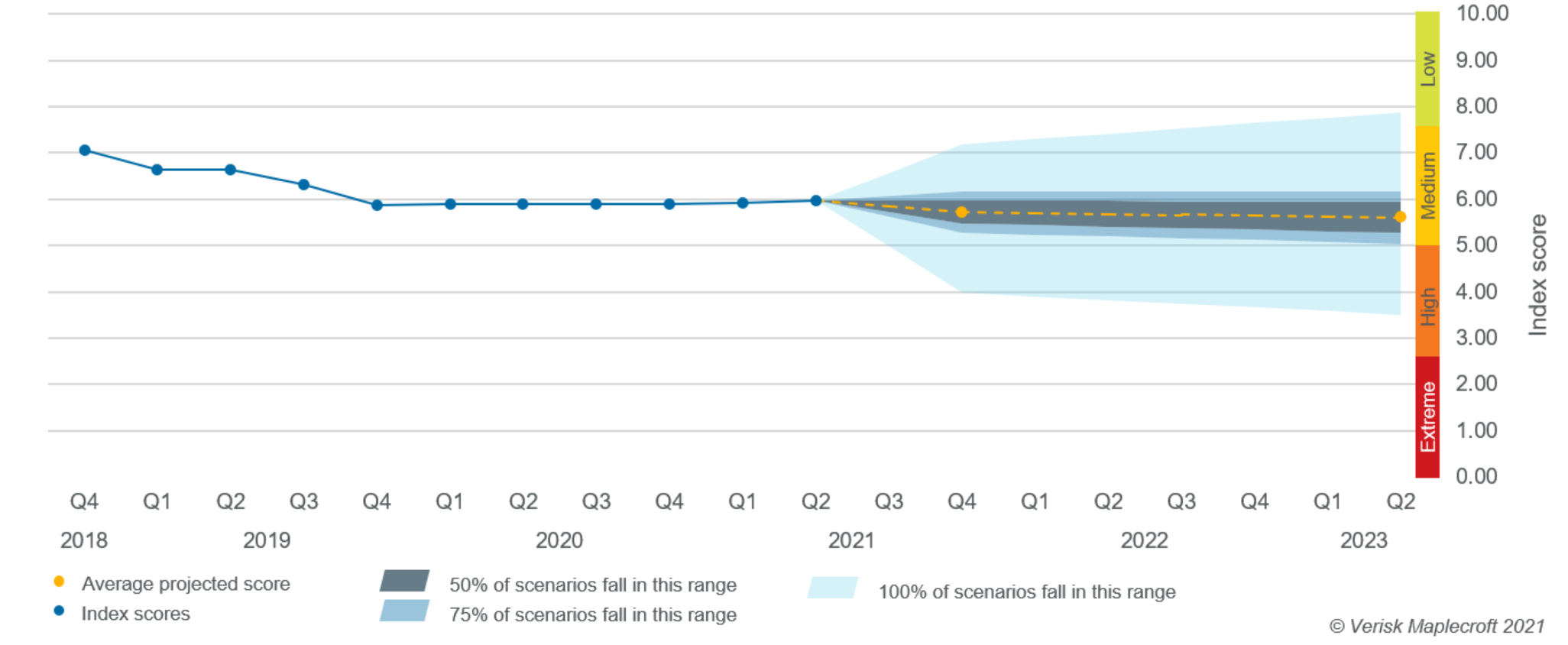Surge of unrest damages Colombia’s political stability
by Karla Schiaffino,
Since 28 April 2021, there have been large-scale protests in all major urban areas of Colombia amid a national strike. President Iván Duque’s controversial fiscal reform, introduced to Congress on 15 April, was the spark that started the demos. But the expected tax increases that would impact low-to-middle income households were the last in a long list of grievances mobilising Colombians since 2019-Q4.
Business disruption has increased steadily since then, and even the 2020 lockdown measures were unable to stop protests altogether. But the latest episodes have been marred by unprecedented violence, including the death of at least 24 civilians at the hands of the riot police (ESMAD) – according to Colombia’s human rights’ watchdog.
As a response, the president withdrew his fiscal reform proposal on 2 May, condemning violence and claiming that criminal organisations were responsible for inciting clashes with law enforcement. A day later, Finance Minister Alberto Carrasquilla, architect of the proposal, tabled his resignation and will be replaced by former commerce minister José Manuel Restrepo. The cabinet changes will do little to assuage discontent and, instead of showing strength, they expose an executive increasingly on the back foot.
Political instability to increase amid waning institutional support for Duque
This last set of protests are but an extension of the unrest that began in November 2019, systematically dismissed by the Duque administration. Over the past year, the pandemic and the resulting restrictions to mobility had slightly curbed social protests. Simultaneously, the underlying social tensions fuelling them have deepened, triggering sparks of localised unrest throughout the year.
Since 2019 the executive has been deaf to some of the most pressing demands from NGOs and activists. By way of example, there have not been genuine efforts to implement the 2016 peace deal with the Revolutionary Armed Forces of Colombia (FARC) – one of the main demands of protesters.
Now, all hell has officially broken loose, and sources confirm that leaders are adamant about continuing protesting until other demands are met. Chief among such exigencies stand the withdrawal of the government’s initiative to overhaul the health system. The reform would force public health entities to fund their operations by selling their services – a de facto privatisation.
Notably, popular rejection of Duque’s initiatives on fiscal and healthcare reform has struck a chord in Congress. Until now, the president’s carefully crafted coalition had accompanied his policy agenda. However, a year out of the 2022 general election, protests add to waning institutional support for Duque’s administration – and to the lack of a reliable interlocutor between the executive and the president’s Centro Democrático (CD) party after the death of former defense minister Carlos Holmes Trujillo in late 2020. We expect the indicator assessing the institutional challenges to the executive in our Government Stability Index to fall through 2021-H2, shaking Colombia’s so far low-risk score of 8.70/10.00.
Find out more about our Country Risk Intelligence service
Expect policy delays and further disruption throughout 2021
The sustained protests suggest Duque’s attempt to defuse social tensions by rolling back the fiscal reform and calling the protest leaders to talks will not suffice to quell demos in a sustained manner. And his decision to meet the disruption caused by the demonstrations with force, including the widely rejected request of military assistance in the height of protests, has only added fuel to the fire.
The executive’s continued dismissal of unrest will weaken peaceful demonstrations as an effective mechanism to channel discontent, triggering increasingly disruptive unrest and dragging Colombia’s already high-risk score of 3.24/10.00 in our Civil Unrest Index during the remainder of the current administration.
Corporate personnel located in large urban areas will continue to be exposed to incidental injury resulting from disruptive protests. Moreover, growing popular discontent towards Duque will erode institutional support to his administration and increase governance risks, delaying pandemic recovery efforts. Indeed, our Political Stability Index projections show a 73% likelihood of increased instability over the next six months.

